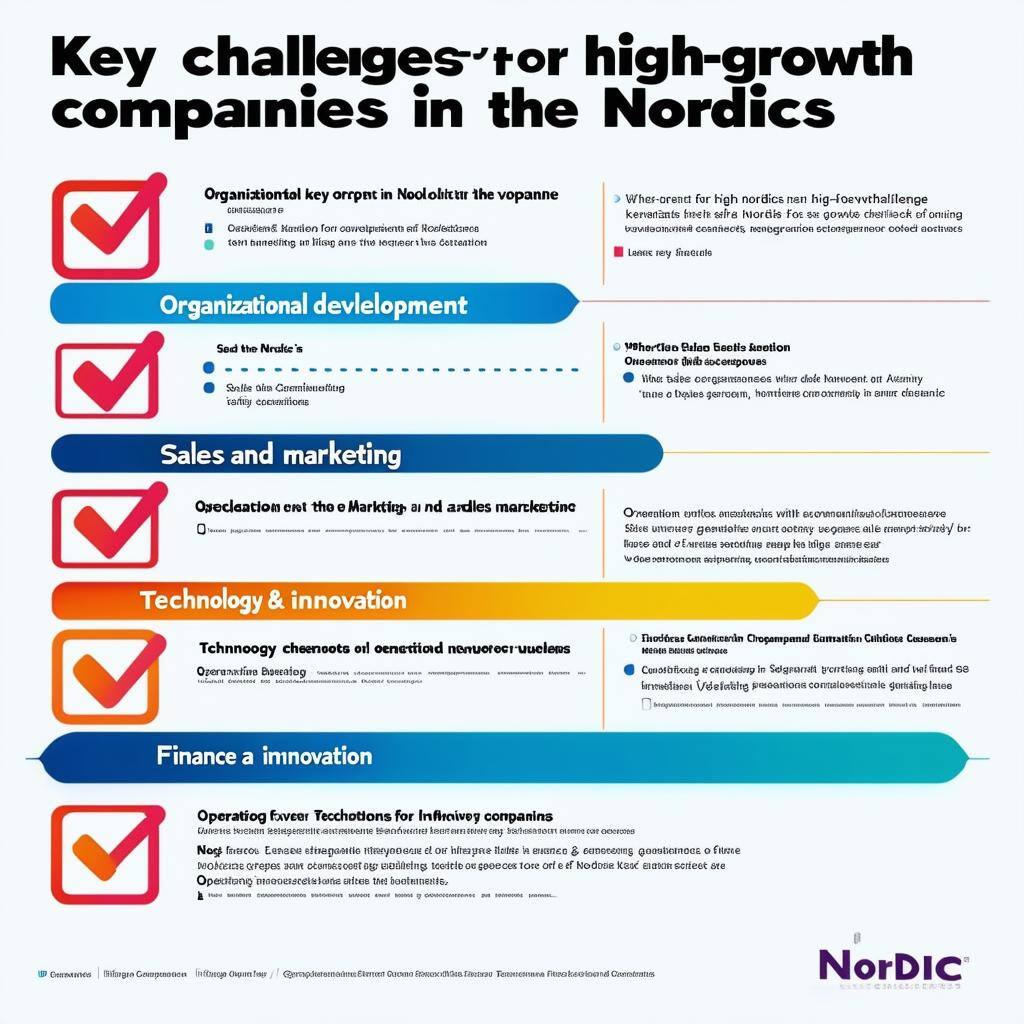The Human Touch: B2B Strategies with Data-driven Insights
Discover how combining data-driven insights with human touch can enhance B2B strategies and drive success.

Discover how incorporating AI in B2B selling can revolutionize your business and maximize efficiency.
Artificial Intelligence (AI) plays a crucial role in B2B selling by providing businesses with advanced tools and technologies to streamline their sales processes. AI technology enables businesses to automate repetitive tasks, analyze large amounts of data, and make smarter decisions. By understanding the role of AI in B2B selling, businesses can leverage this technology to enhance their sales efforts and achieve better results.
AI in B2B selling involves the use of algorithms and machine learning techniques to automate various aspects of the sales process. This includes lead generation, lead qualification, sales forecasting, customer relationship management, and more. AI-powered systems can identify patterns, analyze customer behavior, and provide insights that can help sales teams target the right customers, personalize their interactions, and close deals more effectively.
Furthermore, AI can assist sales professionals in identifying and prioritizing leads based on their likelihood to convert. By analyzing data from multiple sources, such as social media, website interactions, and past purchase history, AI algorithms can identify potential customers who are most likely to make a purchase. This helps sales teams focus their efforts on high-value leads and increase their chances of success.
In addition, AI can also improve the efficiency of lead qualification processes. AI algorithms can analyze customer data and behavior to determine the level of interest and buying intent. This helps sales teams prioritize leads based on their readiness to make a purchase and allocate their resources more effectively. By automating the lead qualification process, businesses can save time and resources while ensuring that their sales efforts are focused on the most promising opportunities.
Overall, understanding the role of AI in B2B selling is essential for businesses that want to stay competitive in today's digital age. By incorporating AI technology into their sales processes, businesses can enhance lead generation, streamline sales processes, personalize customer interactions, and leverage data analytics for smarter decision making. The benefits of AI in B2B selling are undeniable, and businesses that embrace this technology can maximize efficiency and drive better results.
Implementing artificial intelligence (AI) can greatly enhance the lead generation and qualification process in B2B selling. By harnessing the power of AI algorithms and machine learning, businesses can optimize their efforts in identifying potential customers and determining their level of interest and buying intent. This allows sales teams to prioritize leads more effectively, saving time and resources while increasing the likelihood of success. With AI, businesses can revolutionize their lead generation and qualification strategies, ultimately driving better results and maximizing efficiency.
With AI-powered lead generation and qualification, businesses can achieve a higher level of accuracy and efficiency. AI algorithms can analyze vast amounts of data from multiple sources, including customer interactions, website behavior, and social media engagement. By analyzing this data, AI can identify patterns and trends that human sales teams may not have been able to detect. This enables businesses to target the right customers at the right time, increasing the chances of converting leads into customers.
Moreover, AI can also help businesses identify potential customers who may not have been on their radar. By analyzing customer data, AI algorithms can identify individuals who have shown similar behavior patterns to existing customers and may have a high likelihood of converting. This expands the reach of businesses and enables them to tap into new markets and opportunities.
In addition, AI can automate the lead qualification process, allowing sales teams to focus their efforts on leads with the highest potential. AI algorithms can analyze customer behavior, buying patterns, and engagement levels to determine the level of interest and buying intent. This enables sales teams to prioritize leads based on their readiness to make a purchase, ensuring that resources are allocated effectively.
By implementing AI in lead generation and qualification, businesses can save valuable time and resources. AI can handle repetitive tasks, such as data analysis and lead scoring, allowing sales teams to focus on building relationships and closing deals. This increases productivity and efficiency, ultimately driving better results.
In conclusion, incorporating AI in lead generation and qualification can revolutionize the B2B selling process. By harnessing the power of AI algorithms and machine learning, businesses can optimize their efforts, target the right customers, and allocate resources effectively. This leads to increased efficiency, higher conversion rates, and ultimately, better results. Embracing AI technology in lead generation and qualification is essential for businesses looking to stay competitive in today's digital age.
By incorporating AI technology, businesses can revolutionize their sales processes and achieve maximum efficiency. One of the key benefits of AI in B2B selling is its ability to streamline sales processes. Through the use of advanced algorithms and machine learning techniques, AI can automate repetitive tasks, analyze vast amounts of data, and make informed decisions. With AI-driven systems in place, businesses can optimize lead generation, lead qualification, sales forecasting, and customer relationship management, among other aspects of the sales process.
Furthermore, AI can provide valuable insights that help sales teams target the right customers, personalize interactions, and close deals more effectively. By analyzing patterns and customer behavior, AI algorithms can identify potential customers who are most likely to make a purchase. This enables sales teams to focus their efforts on high-value leads, increasing their chances of success.
In addition to streamlining sales processes, AI can also enhance lead qualification. By analyzing customer data and behavior, AI algorithms can determine the level of interest and buying intent of potential leads. This enables sales teams to prioritize leads based on their readiness to make a purchase, ensuring that their resources are allocated effectively. By automating the lead qualification process, businesses can save time and resources, while still focusing on the most promising opportunities.
To stay competitive in today's digital age, businesses must embrace the role of AI in B2B selling. By incorporating AI technology into their sales processes, businesses can enhance lead generation, streamline sales processes, personalize customer interactions, and leverage data analytics for smarter decision making. The benefits of AI in B2B selling are undeniable, and businesses that harness its power can maximize efficiency and drive better results.
Harnessing the power of AI, businesses can create highly personalized customer interactions that drive better results. By leveraging AI algorithms and machine learning, companies can analyze customer behavior and preferences to deliver tailored experiences. This allows sales teams to connect with customers on a deeper level, understand their unique needs, and provide relevant solutions. With AI's ability to personalize interactions, businesses can build stronger relationships with customers, increase customer satisfaction, and ultimately drive higher sales.
In today's highly competitive business landscape, leveraging the power of data analytics has become crucial for making smarter decisions in B2B selling. By utilizing AI algorithms and machine learning, businesses can analyze large sets of data to gain valuable insights and drive better results. Data analytics allows sales teams to identify trends, understand customer behavior, and make informed decisions about their sales strategies.
With the help of AI-powered data analytics, businesses can gain a deeper understanding of their target audience and their preferences. By analyzing customer data, such as purchase history, website interactions, and social media engagement, businesses can identify patterns and trends that can guide their sales strategies. This information can help them tailor their offerings to meet the specific needs and preferences of their customers, ultimately driving higher sales and customer satisfaction.
Data analytics also enables sales teams to identify trends and market opportunities that may have otherwise gone unnoticed. By analyzing data from various sources, businesses can uncover new market segments, emerging trends, and potential areas for growth. This allows them to stay ahead of the competition and adapt their sales strategies to capitalize on these opportunities.
In addition, data analytics can provide valuable insights into customer behavior and preferences. By analyzing customer data, businesses can gain a deeper understanding of what motivates their customers to make a purchase, their preferred communication channels, and the factors that influence their buying decisions. This information can help sales teams personalize their interactions with customers, delivering tailored messages and solutions that resonate with their specific needs and preferences. By providing a personalized experience, businesses can build stronger relationships with customers, increase customer satisfaction, and ultimately drive higher sales.
Furthermore, data analytics can help businesses measure the effectiveness of their sales strategies and make data-driven decisions. By tracking key performance indicators and analyzing sales data, businesses can identify areas of improvement and optimize their sales processes. They can identify the most effective sales techniques, channels, and messaging that drive the highest conversion rates and allocate their resources accordingly. This allows businesses to maximize efficiency and achieve their sales goals.
In conclusion, leveraging the power of data analytics is essential for making smarter decisions in B2B selling. By utilizing AI algorithms and machine learning, businesses can analyze large sets of data to gain valuable insights and drive better results. Data analytics allows sales teams to identify trends, understand customer behavior, and make informed decisions about their sales strategies. By leveraging the power of data analytics, businesses can stay ahead of the competition, maximize efficiency, and achieve their sales goals.

Discover how combining data-driven insights with human touch can enhance B2B strategies and drive success.

In the dynamic business landscape of the Nordic region, high-growth companies face a unique set of challenges as they strive to scale and succeed....

In today's fast-paced digital world, Artificial Intelligence (AI) is more than just a buzzword—it's a game-changer ⚡, especially in the realm of...